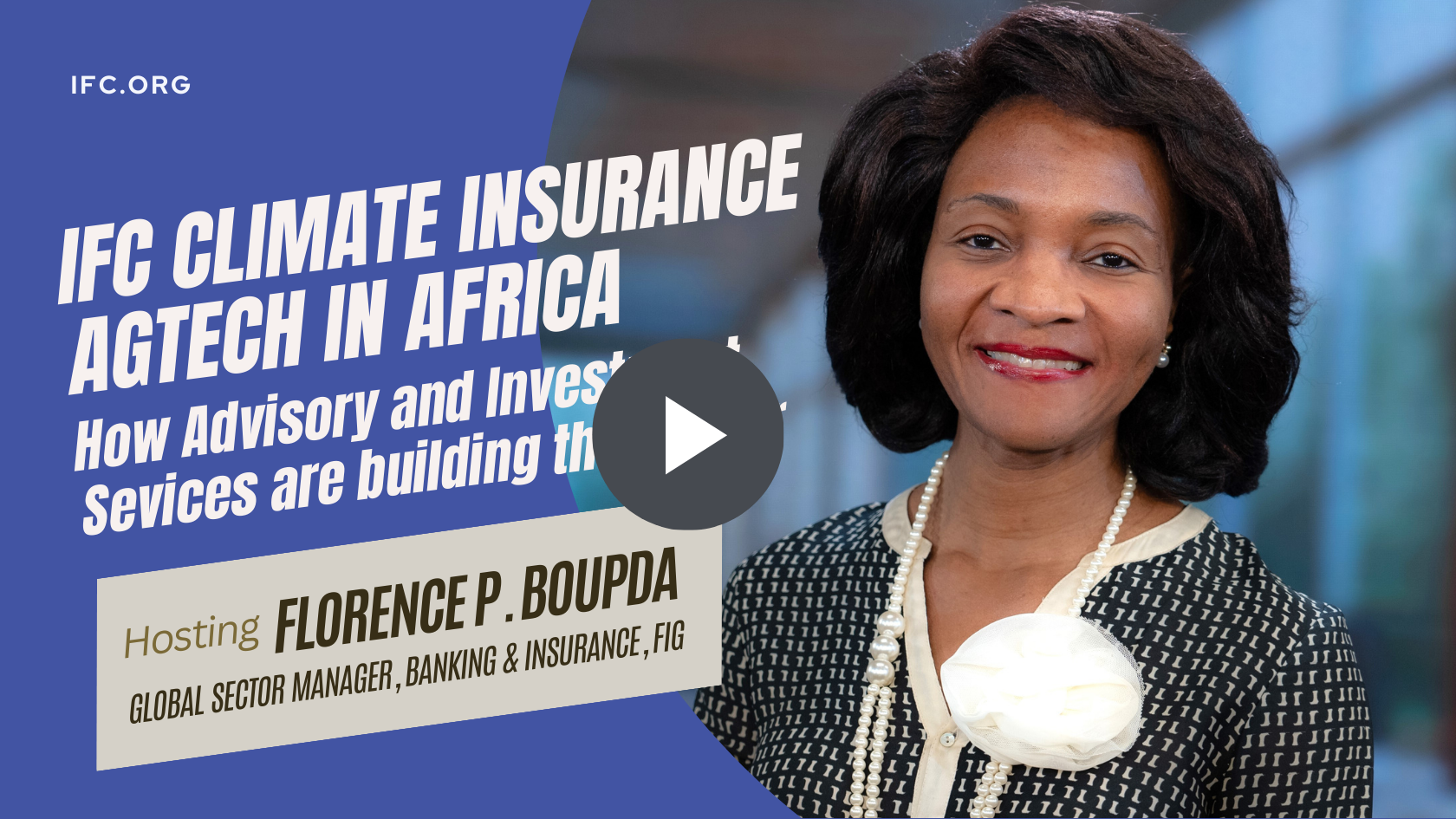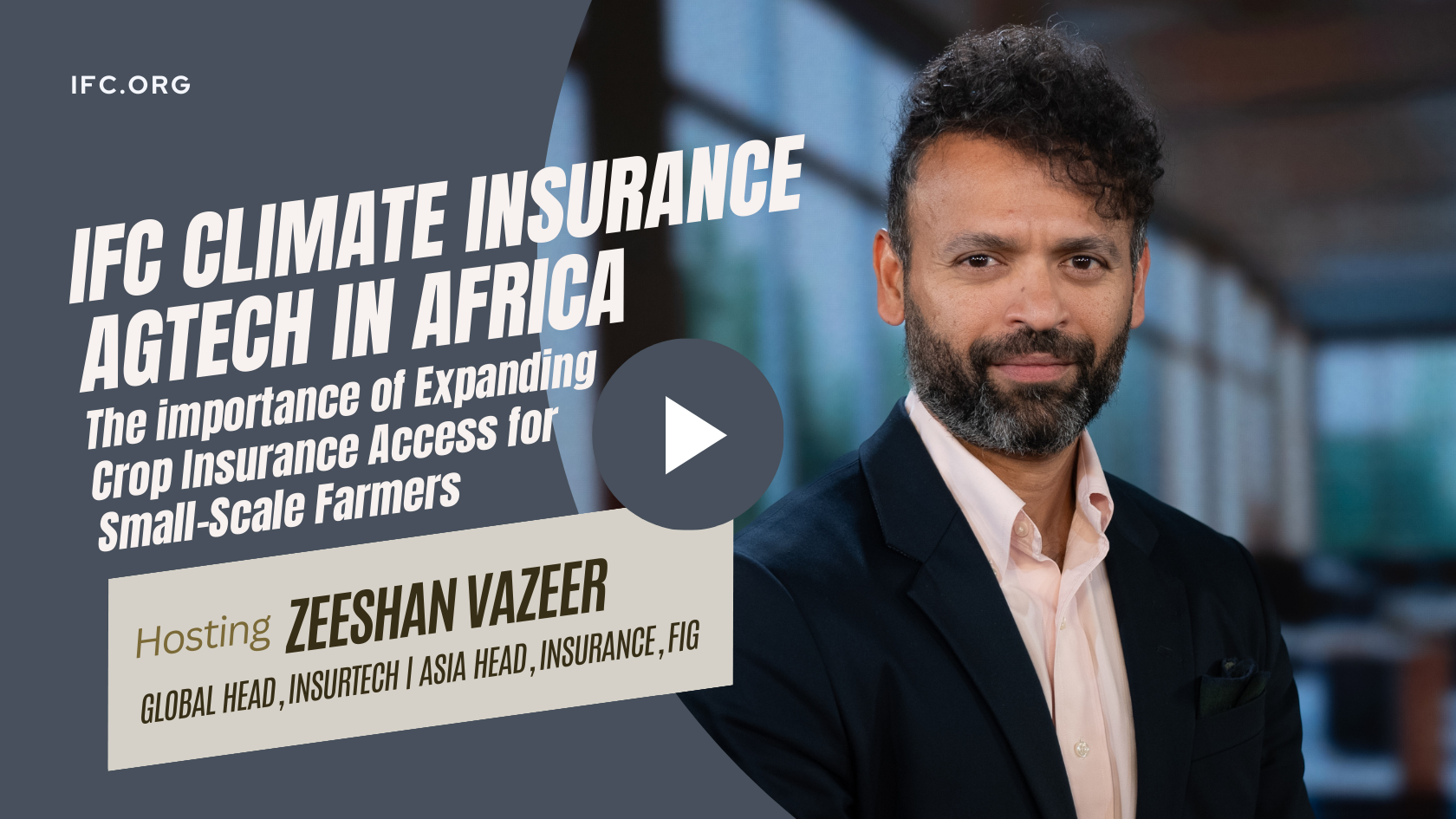IFC Climate Insurance AgTech in Africa
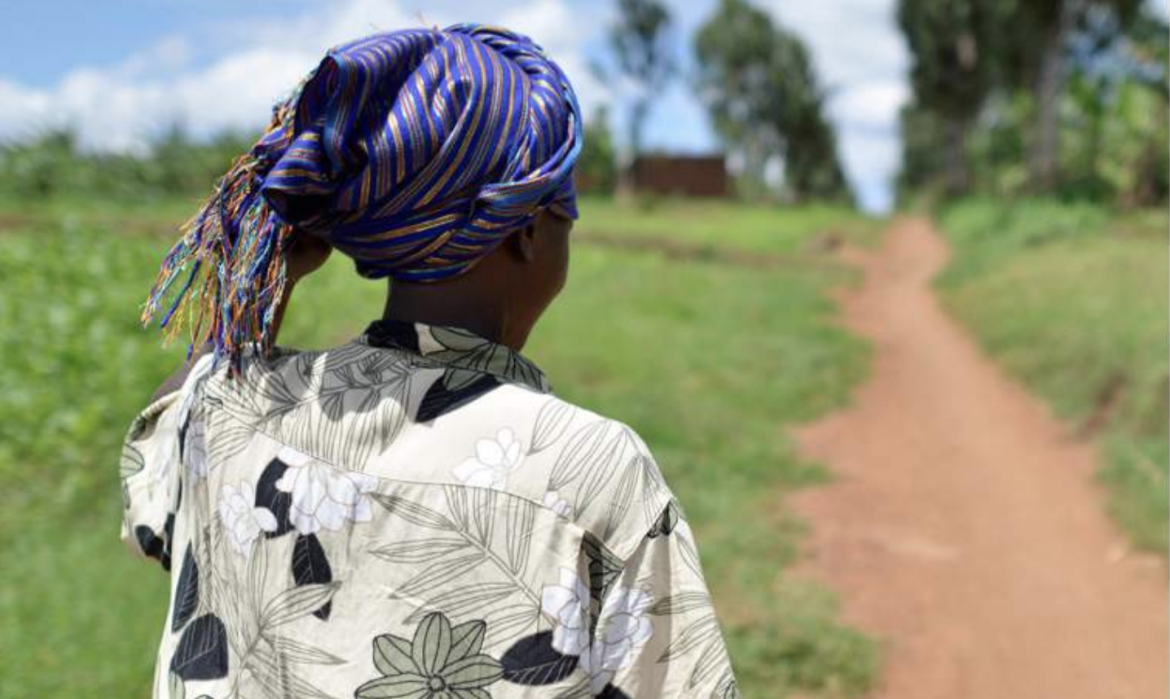
This blog highlights IFC's critical role in supporting climate risk insurance products through collaborative efforts between its Advisory and Investment teams, other development partners and public-private stakeholders. It features a project example involving various levels of engagement within the WBG, which started from a pilot in 2010 and led to an investment in 2024.
In 2010, the World Bank Group's Global Index Insurance Facility (GIIF) program started providing technical assistance and capacity building support to Kilimo Salama (KS), an index-based microinsurance product developed jointly by the Syngenta Foundation for Sustainable Agriculture, the insurance group UAP Holdings and the Kenyan telecom operator Safaricom. The objective was to offer affordable insurance to farming communities lacking alternative crop insurance options in Kenya. Named Kilimo Salama (‘Safe Agriculture’ in Swahili), the product utilized weather stations and mobile technology to provide coverage against weather-related risks such as drought and excessive rainfall. It was disseminated through aggregators such as MFIs, agribusinesses, and cooperatives, mitigating climate shocks for farmers and facilitating access to credit crucial for farm investment and increased production.
Access to credit empowers smallholder farmers to make yield-boosting investments, including adopting climate-resilient crop varieties, farming practices, and technology, thus enhancing long-term productivity and food security. This has proven to be a critical service in a country, where the agricultural sector employs over 40 percent of the total labor force, contributing to more than 20 percent of the country’s GDP (Central Bank of Kenya, Agriculture Survey, 2023). GIIF's initial support to KS aimed at developing affordable insurance products, employing a lean distribution network and an efficient administration platform based on mobile technologies. GIIF's technical expertise in agricultural insurance product design and pricing was pivotal given the nascent nature of the product. The project innovatively employed aggregators and leveraged Safaricom's mobile network and M-PESA payment facility to disseminate information about the product, contract types and coverage details to farmers, resulting in more affordable premiums and eliminating the need for additional infrastructure costs.
By its completion in 2012, the project successfully provided agriculture-based weather insurance policies to approximately 54,000 Kenyan farmers, leading to increased investments by beneficiaries in their farms. A post-project evaluation survey, sampling more than 600 farmers, revealed that insured farmers invested 16% more in their farms than their uninsured counterparts. Moreover, insured farmers demonstrated a 10% increase in investment between 2010 and 2011 compared to a 4% increase among uninsured farmers. The evaluation also noted that a significant portion of the insured farmers received bundled loans, indicating that financial institutions were more inclined to provide agricultural loans due to increased insurance coverage among farmers. These findings suggest that the risk reduction and transfer provided by the project's insurance protection likely encouraged farmers to invest in their farms. Read the Kilimo Salama – Index Based Agriculture Insurance: A Product Design Case Study.
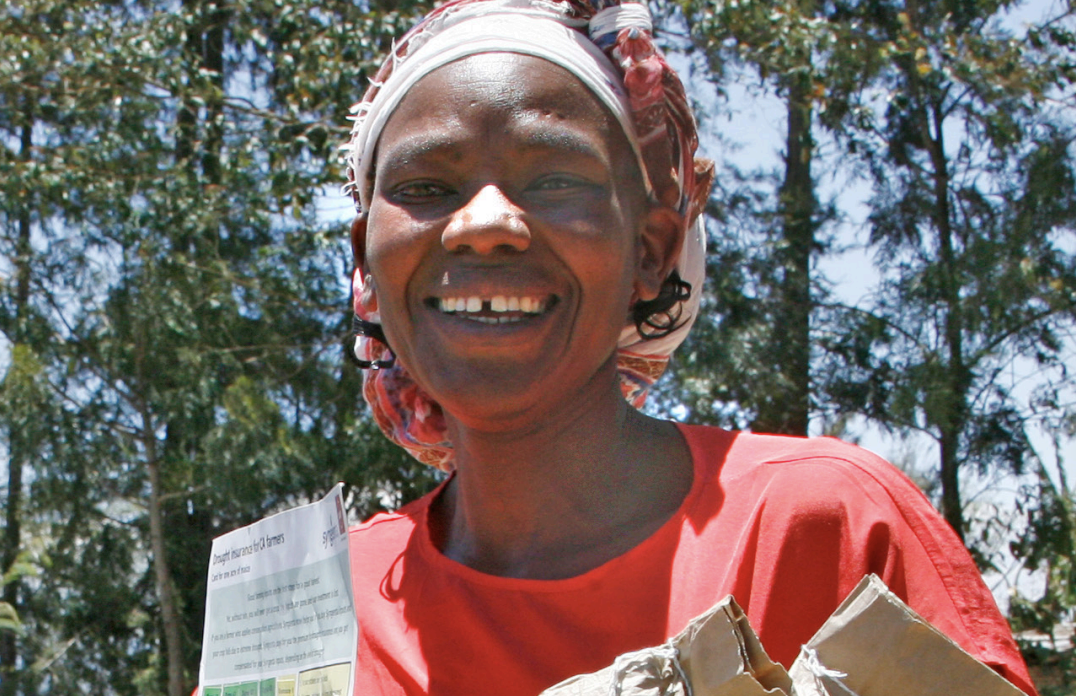
“I had not heard of maize insurance before and I have known insurance to refuse to pay claims so I was 50-50 about the product, but I still joined because there was a promise of compensation. When they actually paid out, I was the only one in my village with certified seed and I shared some of the compensation with my neighbors to convince them to join the program next season”. – Jane G. Simon, Maize Farmer, Laikipia District.
After this successful pilot in Kenya, the client KS, became a fully-fledged commercial company called ACRE Africa, licensed to operate in Rwanda and Tanzania, offering additional products and services. In 2014, GIIF started working with ACRE Africa and by completion in December 2017, the project had effectively extended agriculture insurance coverage to approximately 1.4 million smallholder farmers across these countries. GIIF's industry knowledge and local network also helped facilitate ACRE Africa's product expansion and internal capacity development within these markets. Technical trainings focused on continuous product enhancements, fostering client loyalty among customers, distributors and suppliers, thereby rendering insurance products more appealing to farmers. Another noteworthy achievement we observed on the ground is that the Government of Kenya (GoK) embraced index insurance to enhance resilience and safeguard farmers in drought-prone areas, hence the launch of the crop and livestock insurance programs by GoK.
As ACRE Africa continued to grow, its focus on technologically-driven solutions to develop innovative and sustainable insurance products has also increased and in recent years it started working together with Pula Advisors on DigiFarm, Safaricom’s centralized, mobile-based platform for smallholder farmers. Digifarm provides a range of agricultural services, such as inputs, access to credit, agronomic advisory, access to market and mandatory insurance for farmers taking out loans.
Pula Advisors is an agricultural insurance and technology company, designing and delivering innovative agricultural insurance and digital products to help smallholder farmers endure yield risks, improve their farming practices, and bolster their incomes over time. The company has achieved considerable success in bundling its insurance products with other financial instruments and partnering with banks, local agricultural input dealers, and governmental support programs directed at farmers. In Kenya, Pula has provided area-yield index insurance to smallholders in the frame of a governmental scheme in which ACRE Africa has also participated. Pula’s case offers an interesting example of how an Insurtech company can make smallholder insurance sustainable by creating ecosystems of collaboration that involve a wide variety of stakeholders. This strategy has positioned Pula as a significant insurtech in the climate and agricultural insurance space in Africa.
In April 2024, IFC participated in Pula’s USD 20 million series B fundraising round, that will help thousands of smallholder farmers in emerging markets gain access to insurance against floods, droughts, and other climate-related events. This fundraise will enable Pula to scale its operations and significantly expand its reach over the next 5 years. IFC and Pula teams are excited to collaborate and hope to replicate the prior successes, in this rapidly evolving and highly impactful financial inclusion story. Please read the full announcement here.
“The goal is to identify clients that might not be initially ready for investment but that could benefit from advisory services, until such time as they’re ready for investment.” – Florence P. Boupda, Global Sector Manager, Banking & Insurance, FIG
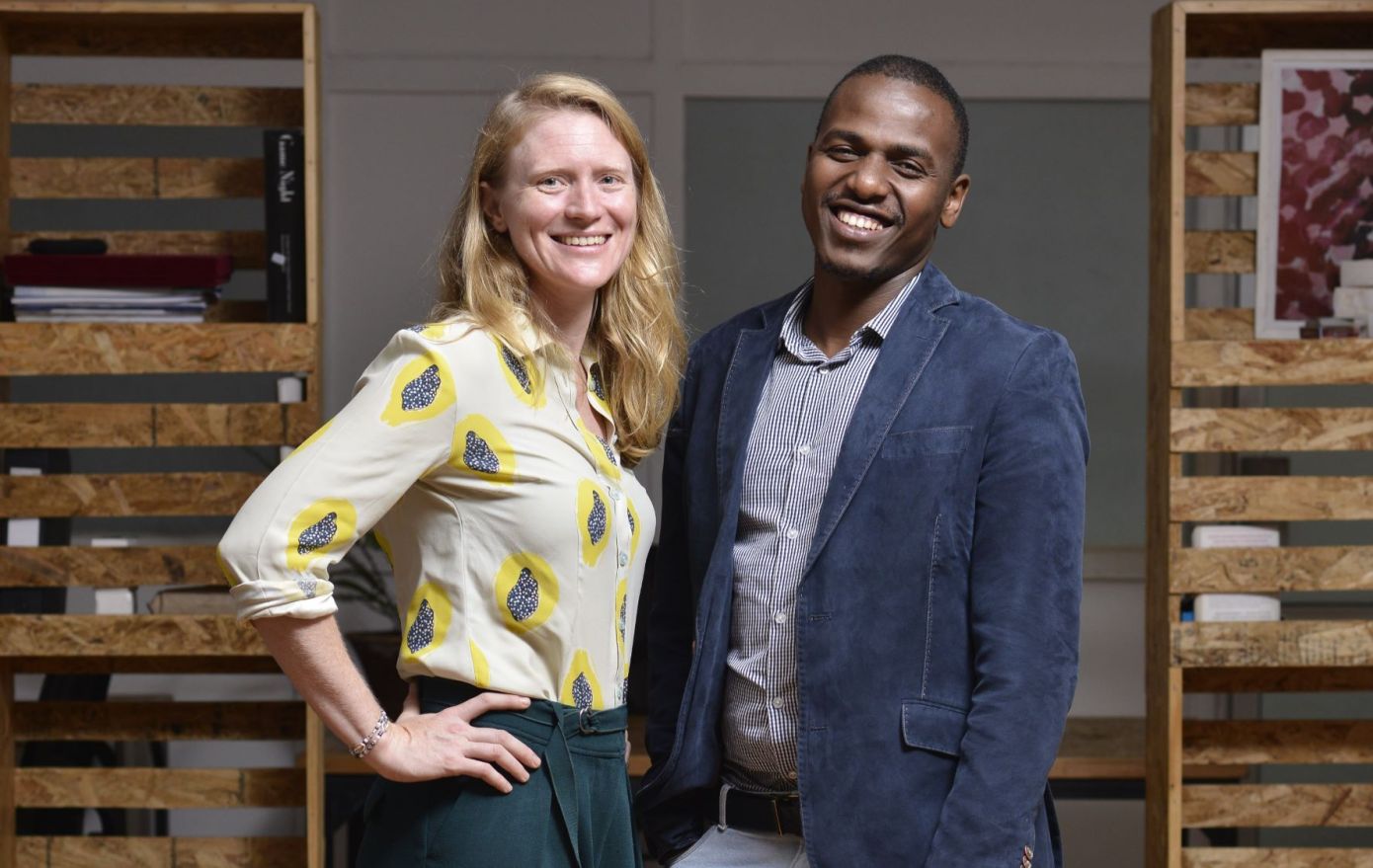
Pula Co-founders Rose Goslinga and Thomas Njeru. Image Credits: Pula
In summary, the initial support provided by GIIF to Kilimo Salama in Kenya, followed by its involvement in the scaling-up phase, and leading to IFC's 2024 investment in Pula, underscores the growth and impact of innovative agricultural insurance initiatives in developing countries. These activities, ranging from technical assistance and capacity building to sustained collaboration between Advisory and Investment, highlight the potential to enhance the resilience and livelihoods of smallholder farmers in regions significantly affected by the increasing severity and frequency of weather-related events.
“With the combination of investment options, knowledge exchange and advisory services, we are proud to support the development and growth of local insurance markets that enable access to finance for smallholders. Because the world is experiencing increasing risks linked to weather events, it is our priority to work together to mitigate these risks before they move individuals back into the poverty cycle and endanger their economic and social survival." – Fatou Assah, Global Head Advisory Services, Financial Institutions Group.

